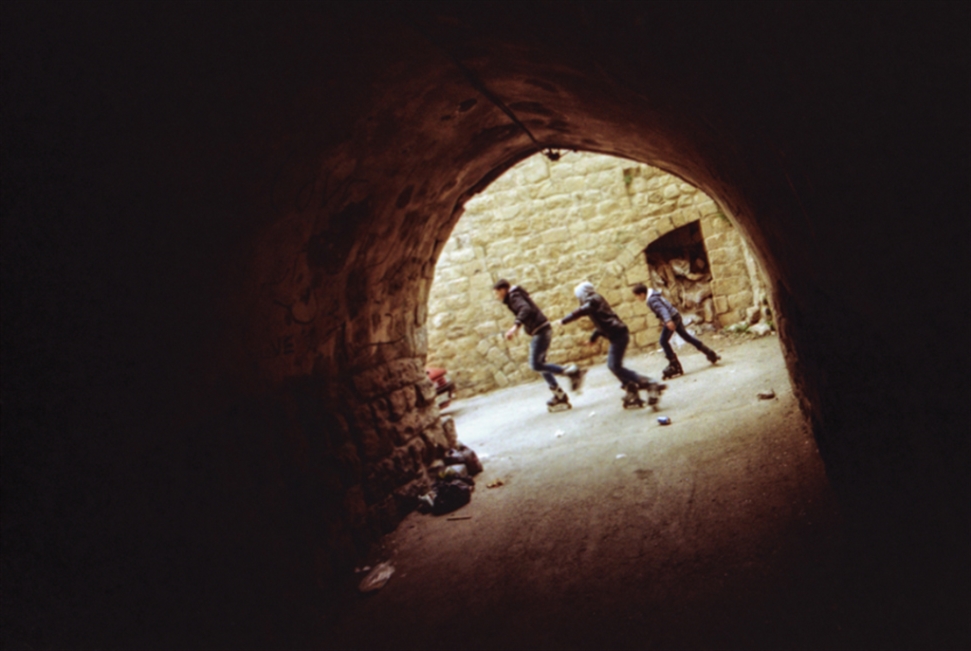The writer calls her character “Sari” and takes her on a long, so to speak, inner and outer journey, forcing us to relive the details of her obsessions and thoughts, and how she decided to stab the a settler, then an event that greatly affects him, how he thinks about his family, friends and the world around him. Having performed his feat, he thinks about the reaction of others. All these are not the only events that happened to Sari, but her life became a runaway time where she jumped to different places, met people she knew in her life before, but was surprised him and how they treat him. , and the worst part is that the wound on his arm is still bleeding and he can no longer go to the hospital. He preferred to treat his wound himself, holding in his hand the knife with which the settler had been stabbed. We know that these details are “true”, but at the same time they are “new”, because in many novels they are on the sidelines. In the novel “Al-Asi” this is the text and the plot.
Thus, these footnotes are of vital importance in Sari’s life simply because they inform us of her true identity as a fugitive hero. Only through him can we get to know him, about what it means to be a hero in an occupied and besieged homeland. This means that he worries and suffers from many obsessions and does not know where to go, so his life seems to be a long journey of invisibility, disappearance, recovery, running and running.
The novelist does not focus on the stabbing itself, but on what happened after it and what happened before it, perhaps so that we can see the horror of the incident and its microscopic details that we do not see on the screens. It also shows the novelist’s ability to say the unexpected. Like how Sari decided to sew up her own wound by going to an internet cafe and finding a way to sew up her wound. Here we imagine that the captive novelist forces us to witness the hidden stories that only those who have experienced them can tell with great skill. So we ask an innocent question: what does it mean for a prisoner to write his own narrative about what happens outside the prison?
The novel does not even mention the prison, it is preoccupied with the idea of ”struggle” and “heroism”, which cannot be felt from the outside. Follow what it means to be a human hero on a long and unknown journey, with neither beginning nor end to be found. But when we read, we feel it is a journey in the opposite direction, like the Orontes River. Here we are dealing with the inner journey more than the outer. With Sari, we experience her inner sense that she is a living stalker and dies at any moment. Is it a prison? We ask ourselves, we know that Sari is abroad, but she lives with those feelings that are her true freedom.
The novelist gives the ending no tragic form. Although imprisonment is the expected end for Sari, the novelist prefers to open it up by giving it the appearance of a new beginning, a journey where Sari’s extraordinary search takes place.
The novel does not even mention the prison, but is preoccupied with the ideas of “struggle” and “heroism”.
So it’s another search, but this time one of his friends is for him. So the search journey does not end, and the writer convinces us that the prison is not the end. And the best thing about the novel is that this ending opens the door for us to find this person within us. Maybe we are all right about one thing, he is the hero who decided to take another mission and go against the flow, and lived with all its consequences with responsibility and pain at the same time. He has no place after what happened in the mosque or the hospital, and sometimes even in the family. This is the rebellious thing we seek to understand what it means to be. His novel appears, perhaps, as a light in the darkness of the Palestinian era in which we look for meaning in these heroes.
The novel reminds us of the poetic fragment of the Argentine poet Antonio Borcia: “They will say that you are on the wrong path if this is your path.” This is what the novel tries to say in a calm language, far from exaggeration. Sarri tried to be himself, to make his own path. Although he thought a lot about what would happen, but everything that happened did not change his beliefs, principles and ideas, and this was true and honest heroism. “He has a name like a fairy tale,” Syed Salame concluded his narration, perhaps in a different way that Sari is the whole story.
Source: Al-Akhbar
